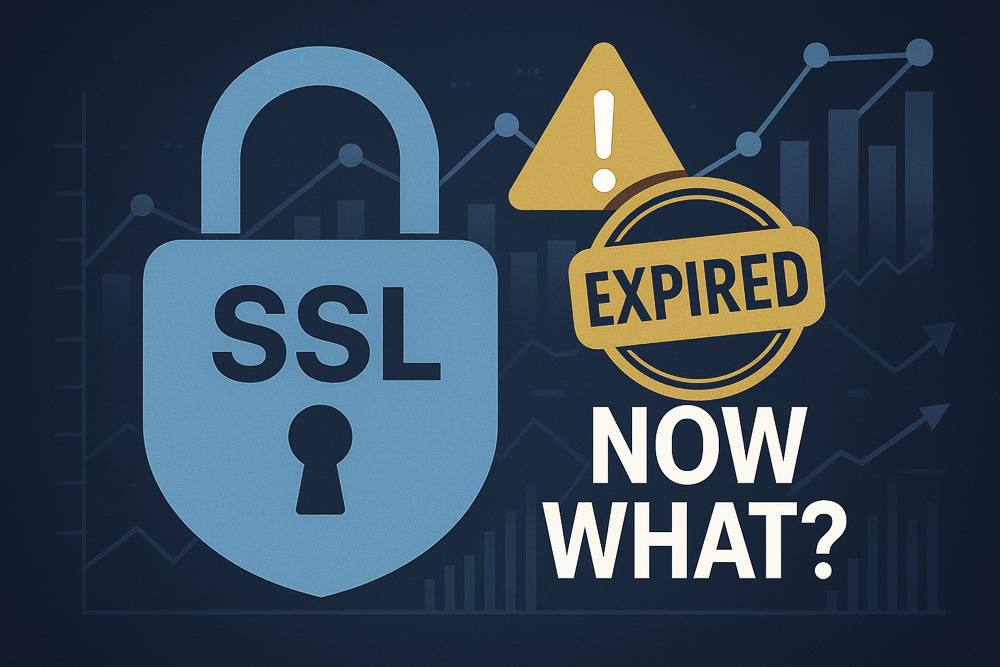SSL Expired? Now What
Why expired SSL certificates are a big deal — and how to fix them fast before your visitors vanish.

If you've ever visited a site and seen a warning like “Your connection is not private,” you know how fast trust disappears. In most cases, that’s caused by an expired SSL certificate — a small but critical file that proves your website is who it says it is.
In this guide, we’ll explain how SSL certificates work, what happens when they expire, and how to renew yours without hurting traffic, trust, or SEO.
Check yours now: Use our free HostChecker SSL tool to instantly see your certificate’s status, issuer, and expiration date.
What is an SSL Certificate?
SSL (Secure Sockets Layer) certificates enable encrypted communication between your server and your users’ browsers. They also authenticate your site’s identity. This is what gives you the trusted padlock icon in the browser bar and allows HTTPS traffic to be secure and private.
What Happens When It Expires?
Once your SSL certificate expires, browsers immediately start showing warnings. Visitors will see messages like “This site is not secure” or “Attackers might be trying to steal your information.” This creates instant drop-off and damages your credibility — even if your site is otherwise safe.
Google also considers SSL in its ranking algorithm, so letting a certificate lapse can indirectly hurt your SEO as well.
How to Renew Your SSL
Renewing an SSL certificate is typically straightforward. If you purchased your cert through your hosting provider, you can often renew it directly from your control panel. Otherwise, go to your certificate authority (CA), revalidate your domain, and install the new cert on your server.
- For most shared hosts: use auto-renew tools or cPanel's SSL/TLS manager.
- For VPS or cloud servers: generate a new CSR, request a new cert, and update your web server config (Apache/Nginx).
- For Let’s Encrypt users: run the renewal command or configure cron to do it automatically.
How to Avoid Future Expiry
The best solution is automation. Let’s Encrypt certificates expire every 90 days, but they can auto-renew with simple scheduling. Many paid certs offer multi-year plans — just remember to confirm renewal reminders are going to an active email address.
You should also monitor SSL expiry dates as part of your uptime or domain monitoring workflow. Better to be warned early than to wake up to a traffic crash.
Final Thoughts
SSL certificates might seem like background noise — until they expire. Then it’s an emergency. Avoid that drama by checking yours regularly, setting up automated renewals, and staying ahead of expiration windows.
And if you’re not sure when yours runs out, just run a quick check with HostChecker. It’s free, instant, and browser-based.